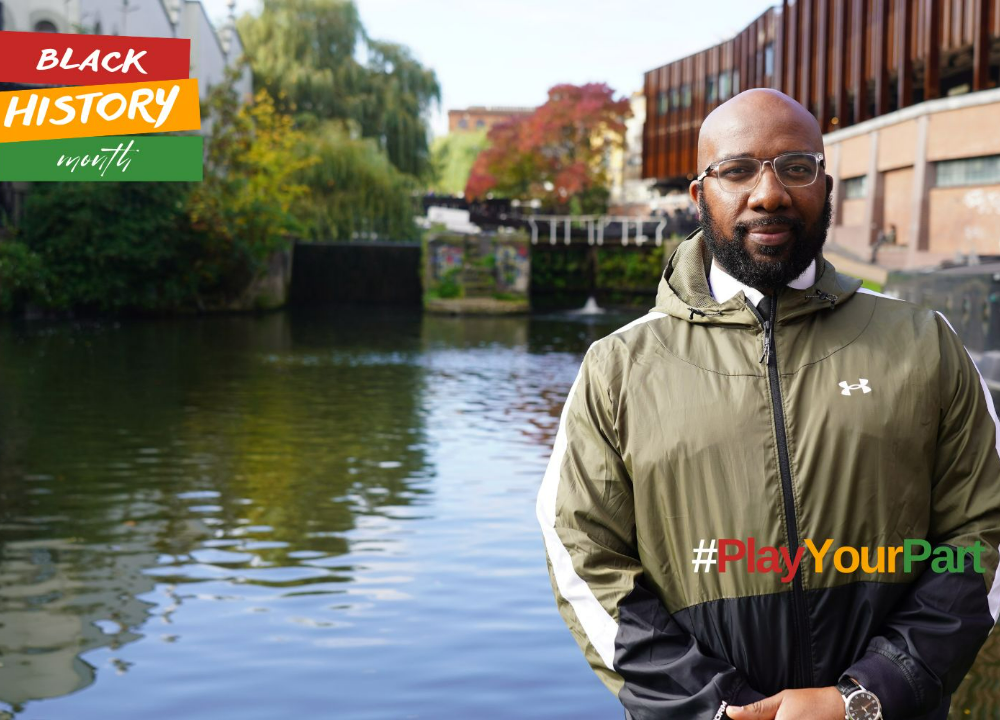Tell us about your journey into policing
Policing was not a career I had given any serious consideration to until my mid-20s. After completing my degree at university and subsequently dropping out of Law School, I began working on the railway with aspirations of progressing to middle management. However, after assisting BTP officers during several incidents, I was inspired to volunteer as a Special Constable. It was during this time that I realised policing was the career path for me.
My decision was met with heavy scepticism and negativity from a number of my friends and family. Like many in the black community, most of them had been let down by the service at one time or another, either through personal experience or through the encounters of someone close to them. However, reflecting on my career journey, one of the things I am most pleased about is seeing how that initial scepticism has turned into a great sense of pride. A picture of me in full policing attire at my passing out ceremony hangs prominently in my parents' living room, always reminding me of the turnaround in how we view the service. I will always be grateful to BTP for the tremendous part it has played in making that possible.
What is your role in relation to Lucy?
My current role is Staff Officer to Chief Constable Lucy D’Orsi. It is a varied and complex role, requiring me to communicate with senior leaders in the Force and key stakeholders, provide professional advice, guidance, and support, and manage enquiries, correspondence, and contentious issues on behalf of the Chief Constable. It has definitely been challenging, but I am enjoying it. The role has given me the opportunity to develop my ability to think strategically, appraise risk, and influence outcomes at the very top of the organisation. I know I will leave this role with far greater confidence and as a much more capable leader.
Tell us about SAME, your role, what you do, how can people get involved?
SAME is the Support Association for Minority Ethnic staff. We aim to improve the working environment for all staff from ethnic minority backgrounds in BTP and to establish good working relations between the Police and ethnic minority communities within our jurisdiction, with a view to enhancing the quality of service to the public. We also seek to raise awareness within BTP of issues relating to race and cultural diversity, both within the working environment and the travelling public at large. The current SAME executive committee was only recently elected, but we have big plans for engagement activity kicking off in the new year. More details will be shared in the near future, so watch this space.
Black History Month – what are your thoughts about it?
As one of the few black senior officers in policing, Black History Month holds a special significance for me. It is a time not only to celebrate the remarkable contributions of black individuals throughout history but also to reflect on the ongoing journey towards equality, justice, and representation. I’m reminded of the pioneers who fought for civil rights, dignity, and justice – many of whom did so in the face of systemic challenges. Their resilience paved the way for the progress we see today, including the growing presence of people like me in leadership roles within institutions like policing. Yet, it also compels me to recognise that our work is far from finished. The need for greater representation, understanding, and trust between law enforcement and black communities remains a pressing issue.
As we honour this rich history, I am reminded of the responsibility we carry to continue that legacy. For me, that means using my role to advocate for fairness, break down barriers, and ensure policing is truly reflective of the communities we serve. It means mentoring and empowering the next generation of officers from minority backgrounds and being an agent of change within a system that has much to learn and improve.
Black History Month is not just about the past – it is about the future we are building together. It is a call to action, reminding us that the fight for equality, both in policing and in society at large, must continue with unwavering determination.




